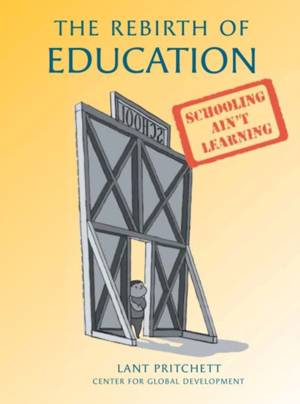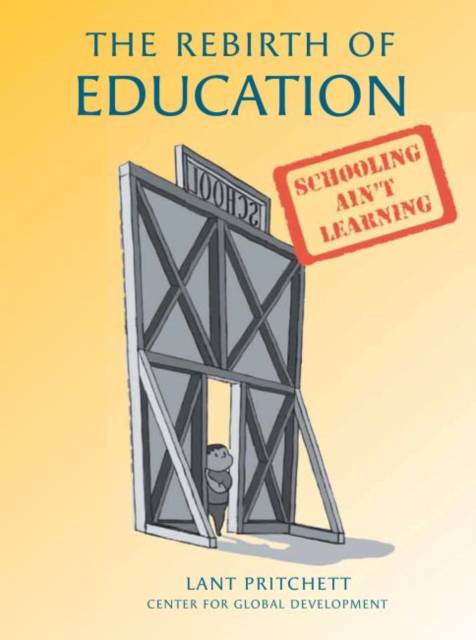
- Afhalen na 1 uur in een winkel met voorraad
- Gratis thuislevering in België vanaf € 30
- Ruim aanbod met 7 miljoen producten
- Afhalen na 1 uur in een winkel met voorraad
- Gratis thuislevering in België vanaf € 30
- Ruim aanbod met 7 miljoen producten
Zoeken
€ 33,95
+ 67 punten
Omschrijving
Despite great progress around the world in getting more kids into schools, too many leave without even the most basic skills. In India's rural Andhra Pradesh, for instance, only about one in twenty children in fifth grade can perform basic arithmetic. The problem is that schooling is not the same as learning. In The Rebirth of Education, Lant Pritchett uses two metaphors from nature to explain why. The first draws on Ori Brafman and Rod Beckstrom's book about the difference between centralized and decentralized organizations, The Starfish and the Spider. Schools systems tend be centralized and suffer from the limitations inherent in top-down designs. The second metaphor is the concept of isomorphic mimicry. Pritchett argues that many developing countries superficially imitate systems that were successful in other nations - much as a nonpoisonous snake mimics the look of a poisonous one. Pritchett argues that the solution is to allow functional systems to evolve locally out of an environment pressured for success. Such an ecosystem needs to be open to variety and experimentation, locally operated, and flexibly financed. The only main cost is ceding control; the reward would be the rebirth of education suited for today's world.
Specificaties
Betrokkenen
- Auteur(s):
- Uitgeverij:
Inhoud
- Aantal bladzijden:
- 288
- Taal:
- Engels
Eigenschappen
- Productcode (EAN):
- 9781933286778
- Verschijningsdatum:
- 30/10/2013
- Uitvoering:
- Paperback
- Formaat:
- Trade paperback (VS)
- Afmetingen:
- 174 mm x 231 mm
- Gewicht:
- 530 g

Alleen bij Standaard Boekhandel
+ 67 punten op je klantenkaart van Standaard Boekhandel
Beoordelingen
We publiceren alleen reviews die voldoen aan de voorwaarden voor reviews. Bekijk onze voorwaarden voor reviews.











